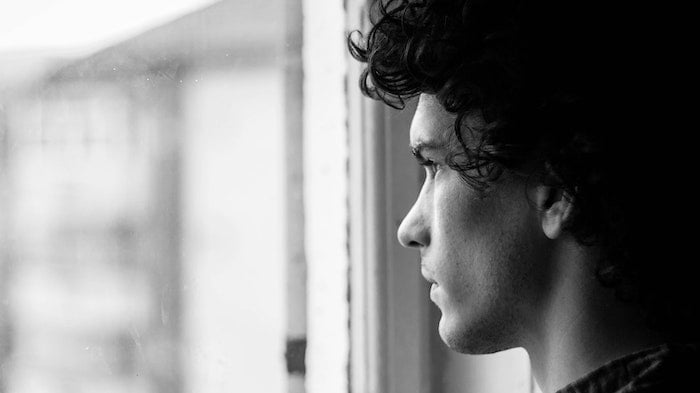Understanding a bit about porn use and its effects is important. Through learning, you’re better able to self-reflect on how your own practices affect you and others, where it can end up, and what you can do about it.
Around half of UK adults watch porn.[1] It’s reported that around 5–8% of the world’s adult population is addicted to porn.[2] That’s more than 350,000,000 individuals; a huge amount!
Research shows that men are more likely to watch porn than women.[3] Apparently, around 64–70% of men indulge and around 23–33% of women are viewers too.[4]
If you’re wondering what the effects of porn addiction are, read on. You’ll also find out what you can do about them.
Why Do People Watch Porn?

It’s helpful to consider why people watch porn. Despite it remaining a private and even taboo subject in many situations, many people use it regularly. So what draws people to it?
There are many reasons. For most, it usually starts with curiosity. This is especially the case when teenagers and young people seek it out. It might be viewed in a “joking” fashion by a couple of friends.
Away from the exploring attitude, people can return to it in both a recreational and also compulsive manner. The following reasons are what drive viewers to porn sites:
- For pleasure
- To reduce stress
- To alleviate boredom
- To help trigger sleep
- To find out about sex (i.e. “education”)
- To enhance self-exploration and solo sex behaviours
- As part of a sexual relationship with another
- It’s become a compulsive habit
Viewing porn can become an unhealthy addiction that affects mental health, relationships and social situations.
Some people use porn in a “stressed but non-compulsive” manner. For instance, if they’re lacking romance or have low self-esteem in relation to sexual relationships they might use porn.
What is Porn Addiction?
There are both problematic porn use and addictive porn use. These behaviours are slightly different. It’s important to acknowledge that “porn addiction” is not currently recognised under the DSM-5 (a diagnostic tool for mental health conditions) as an addiction.
That being said, there are many health and addiction professionals that claim porn use can lead to addiction.
It is, however, hypersexual behaviour and this is recognised as a behaviour that can form an addiction.
Around 3–6% of people have a hypersexual disorder. This is a disorder that in its effects is linked to low sexual desire, satisfaction, premature ejaculation, erectile dysfunction and arousal dysfunction.[5]
A person can experience cravings for pornographic material whether erotic images or videos. It can affect education, work, and a person’s social life.
This is demonstrated when a person starts obsessing over porn; it becomes their main interest or focus. At its worst, addicted people might start watching porn in inappropriate spaces in public.
More about Behavioural or Process Addictions
Porn addiction is what is known as a behavioural or process addiction. It’s helpful to compare it to substance addictions in order to understand it a bit better.
Substances, such as alcohol or drugs, cause chemical reactions in the brain (i.e. a release of serotonin or dopamine) and this makes you feel a certain way. For many, the desired effects are so strong they have to take the substance again.
Of course, the effect of psychoactive substances alters chemistry and hormones in the body and can lead to dependency as the body comes to need to feel “normal”.
Behavioural addictions include:
- Exercise addiction
- Shopping addiction
- Tanning addiction
- Gambling behaviours
- Food addiction
Participating in certain behaviours (i.e. those just mentioned), while they don’t directly impact the brain like substances do, they do affect brain activity through a process that the field of psychology identifies as “operant conditioning”. This is where a behaviour activates “natural rewards” in the brain.
If a behaviour feels good, you’re likely to repeat it. These repetitive behaviours can make you feel good because they release dopamine in the brain and this can lead to compulsive behaviours as brain wiring starts to “wire in” the behavioural pattern.
This can lead to “neuroplastic impairments” where motivation, self-control and regulation and other cognitive functioning are affected.[6]
Just as you can become addicted to food, so can you become addicted to porn. This can actually lead to tolerance, just like with other addictions, where you become desensitised to pornographic material and seek out more graphic content. As well as this your sex drive and sexual activity can be affected.
What are the Causes of Porn Addiction?

There are many factors that influence the development of porn addiction. This can range from it being easy to access to other “deeper” reasons.
- Brain chemistry. Some people are simply more likely to develop an addiction than others. This is because some have a genetic predisposition for addiction. Some people are naturally more sensation-seeking.
- Having higher levels of sex hormones (testosterone and oestrogen). Combine this with being more sensation-seeking and having impulsive behaviours and it’s not surprising porn addiction develops for some.
- Psychological factors including to ease stress or perhaps linked to mental health conditions.
- Having relationship problems. Some people might use porn if they’re sexually estranged from their partner.
- Cultural factors around social expectations and influences (i.e. peer influence).
- Linked to trauma, such as physical or sexual abuse in childhood
Whatever the reason for the addiction developing, it’s a reflection that a person’s mental and emotional health is out of balance and could require some professional support.
The Signs You Have a Porn Addiction
The main signs of porn addiction include:
- Watching it excessively
- Thinking about it on a regular basis
- Craving it
- Not being able to stop watching it
- Secretive behaviours trying to hide how often you watch or that you watch it all
- Frustration or anger at being told to stop
- Excessive money spending on it
- Watching more explicit material or graphic porn to feel an effect/arousal
- Using porn to deal with or distract from difficult feelings events
- Feeling shame or guilt after watching it
- Struggling to experience sexual excitement
- Becoming desensitised leading to reduced sexual satisfaction
- Experiencing sexual dysfunction or struggling with sexual performance
- A negative strain on romantic relationships
The Effects of Porn Addiction: Withdrawal Symptoms
As you can expect there are many negative effects of pornography addiction. These are coming up, but firstly it’s important to recognise that people can experience withdrawal symptoms.
Being a psychological addiction (rather than physical), the effects are largely mental and emotional.
Symptoms include:
- Mood swings
- Irritability and agitation
- Anxiety
- Depression or low mood
- Unable to focus or concentrate
- Social isolation
- Sexual cravings
The Effects of Porn Addiction

Developing a porn addiction actually changes brain structure. This is linked to the dopamine release and the repetition of the behaviour becoming more ingrained in the brain as a pattern.
For example, if you start swimming every morning, the longer you do this, the easier it is to keep doing it and to maintain the behaviour as a lifestyle habit. It’s similar to porn use.
The effects of porn addiction:
- Reduced feelings of pleasure in relation to porn and other behaviours and also experiencing cravings for it.
- Porn use is linked to mental health issues.[7]
- Troubles in romantic relationships linked to intimacy and trust. This is especially the case when porn users become secretive about use and avoidant of the issue.
- Reduced self-esteem for both you and your partner in the bedroom.
- Problems linked to sexual activity and sexual intercourse. Sex in real life becomes affected by fantasy. This might be linked to the misrepresentation of sex and sexuality and because porn can promote aggression, promiscuity and unhealthy or illegal practices.
Tips To Manage Your Porn Habits
If porn use has become an unhealthy behaviour in your daily life, it’s likely you’ve developed a sexual addiction. There are a few things you can try out to alter your habits.
- In relation to your online activities, you can block sites so that it becomes physically more difficult to access porn. This barrier can sometimes be very helpful.
- To reduce excessive porn use, start by thinking about your frequency of consumption. If you use porn three times a day, try to reduce this to once a day.
- Look up online resources that give advice on how to manage your fixation on pornographic content (i.e. such as this page).
- Find an addiction educational resource such as the OK Rehab site to help you understand addiction and what’s going on.
- Reduce any substance use. Drug and alcohol can affect how you use and how often you use porn.
- Focus on improving any relationship issues. Open up to your partner, explain you want to put in more effort and energy into your relationship, and discuss ideas around this.
Bear in mind, where a moderate or severe porn addiction has developed, the reward systems in the brain are likely to require specialist treatment. You can access this at private rehabilitation clinics.
Can You Be Treated for Porn Addiction?

You can, indeed, be treated for addictions related to sexual behaviour. These quite often are linked to other mental health disorders, such as anxiety or depression.
As well as this, porn addiction can co-occur alongside alcohol or drug addiction. Where more than one condition is present it’s referred to as a dual diagnosis.
At a private clinic, staff understand that there is often a relationship between pornography consumption and other mental health issues and both can be addressed.
What Treatments are there?
There are various treatments used in relation to porn addiction. These include:
- Cognitive behavioural therapy in order to tackle the cognitive functioning caused by behavioural addiction and to address related behaviours.
- Medical treatment through a doctor. Important if you’re having trouble climaxing, with natural lubrication, in relation to pain or discomfort, or in the presence of other mental or physical conditions.
- Couples therapy supports the recovery of intimate relationships and improves communication patterns and behaviours.
Where Can You Access Support to Quit Using Porn?
There are various places you can go to for support around porn addiction. For mental disorders, you can access mental health support through your local GP. Some people contact Sex Addicts Anonymous where you’re supported to reduce your consumption of pornography in a peer-led way.
If you have a substance addiction as well as a porn addiction or a severe porn addiction that requires professional treatment, a private rehab clinic offers the most suitable option for recovery support. You can contact us at OK Rehab to talk about this in more detail.
Final Thoughts
Addiction to porn has increased with its easy accessibility. It’s common that when addiction develops, viewers veer towards more extreme content. This occurs as a result of desensitisation around the material. Excessive use leads to sexual dysfunction as well as causing an issue in relationships.
For many, porn addiction co-occurs with other mental health conditions such as anxiety, depression, and substance use disorders. In such cases, it’s imperative to access specialist support.
FAQs

What’s so wrong about porn addiction?
Wrong isn’t a useful word. However, addiction to porn can be extremely unhealthy when it impacts a person’s mental, emotional, and sexual health, and when it negatively affects relationships.
What causes addiction?
It’s impossible to say what causes addiction for an individual although there are often common factors that exist, including genetic predisposition, family history of addiction, mental health disorders, personality factors (i.e. low self-esteem), and environment.
I’m starting to notice the side effects of my porn addiction. What do I do?
If you’ve noticed side effects of porn addiction, you can get support from Sex Addicts Anonymous or from private addiction clinics that specialise in behavioural addictions.
References
[1] https://www.bbc.co.uk/news/newsbeat-57428077
[2] https://earthweb.com/how-many-people-are-addicted-to-porn/
[5] https://www.ncbi.nlm.nih.gov/pmc/articles/PMC6352245/





